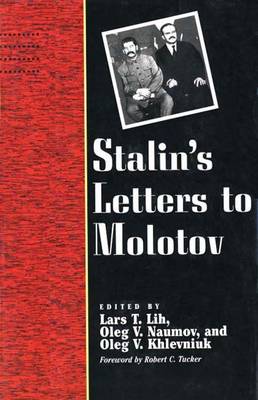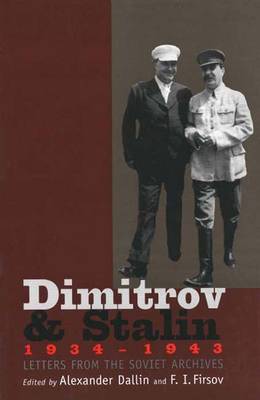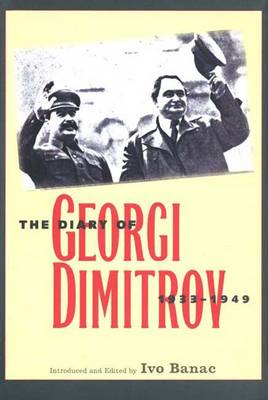Annals of Communism
3 total works
Between 1925 and 1936 - a dramatic period of transformation within the Soviet Union - Josef Stalin wrote frequently to his trusted friend and political colleague Viachestav Molotov, Politburo member, Chairman of the USSR Council of Commissars and minister of foreign affairs. In these letters, Stalin mused on political events, argued with fellow Politburo members and issued orders. The more than 85 letters collected in this volume constitute a historical record of Stalin's thinking-both personal and political and throw light on the way he controlled the government, plotted the overthrow of his enemies and imagined the future. This formerly top secret correspondence was once housed in Soviet archives. The letters reveal Stalin in many different and dramatic situations: fighting against party rivals like Trotsky and Bukharin; trying to manoeuvre in the rapids of the Chinese revolution; negotiating with the West; insisting on the completion of all-out collectivisation and ordering the execution of scapegoats for economic failures.
They provide information about the Soviet Union's party-state leadership, about party politics and about Stalin himself as an administrator, as a Bolshevik and as an individual.
They provide information about the Soviet Union's party-state leadership, about party politics and about Stalin himself as an administrator, as a Bolshevik and as an individual.
Bulgarian Georgi Dimitrov, Stalin's close confidant and trusted ally, served as secretary general of the Communist International (Comintern) from 1934 to its dissolution in 1943. In this revealing collection of more than fifty top-secret letters, the real workings of the Comintern emerge clearly for the first time. Drawn from classified Soviet archives only recently opened to Russian and American scholars, these letters offer unique insights into Soviet foreign policy and Stalin's attitudes and intentions while the Great Terror of the 1930s was in progress and in the years leading up to the Second World War. Annotated by the editors to provide the historical context in which these letters were written, the collection is vivid and startlingly significant. The letters confirm the complete dependence of the Comintern on the Kremlin, while also exposing bureaucratic manoeuvering, backbiting, and jockeying for influence. These messages cast much new light on the Soviet confusion about policies toward foreign Communist parties, and they uncover the extent to which Stalin shaped the Comintern.
Stalin's perspectives on America, French communism, and the Spanish Civil War are recorded, as are his differences with Mao Zedong and with Marshal Tito at important turning points. With the publication of these letters, the history of twentieth-century communism gains authentic new evidence about a critical decade.
Stalin's perspectives on America, French communism, and the Spanish Civil War are recorded, as are his differences with Mao Zedong and with Marshal Tito at important turning points. With the publication of these letters, the history of twentieth-century communism gains authentic new evidence about a critical decade.
Georgi Dimitrov (1882-1949) was a high-ranking Bulgarian and Soviet official, one of the most prominent leaders of the international communist movement and a trusted member of Stalin's inner circle. Accused by the Nazis of setting the Reichstag fire in 1933, he successfully defended himself at the Leipzig Trial and thereby became an international symbol of resistance to Nazism. Stalin appointed him head of the Communist International (Comintern) in 1935, and he held this position until the Comintern's dissolution in 1943. After the end of World War II, Dimitrov returned to Bulgaria and became its first communist premier. During the years between 1933 and his death in 1949, Dimitrov kept a diary that described his tumultuous career and revealed much about the inner working of the international communist organizations, the opinions and actions of the Soviet leadership, and the Soviet Union's role in shaping the postwar Eastern Europe. This document, edited and introduced by historian Ivo Banac, is available in English in this volume. It is a useful source for information about international Communism, Stalin and Soviet policy, and the origins of the Cold War.


